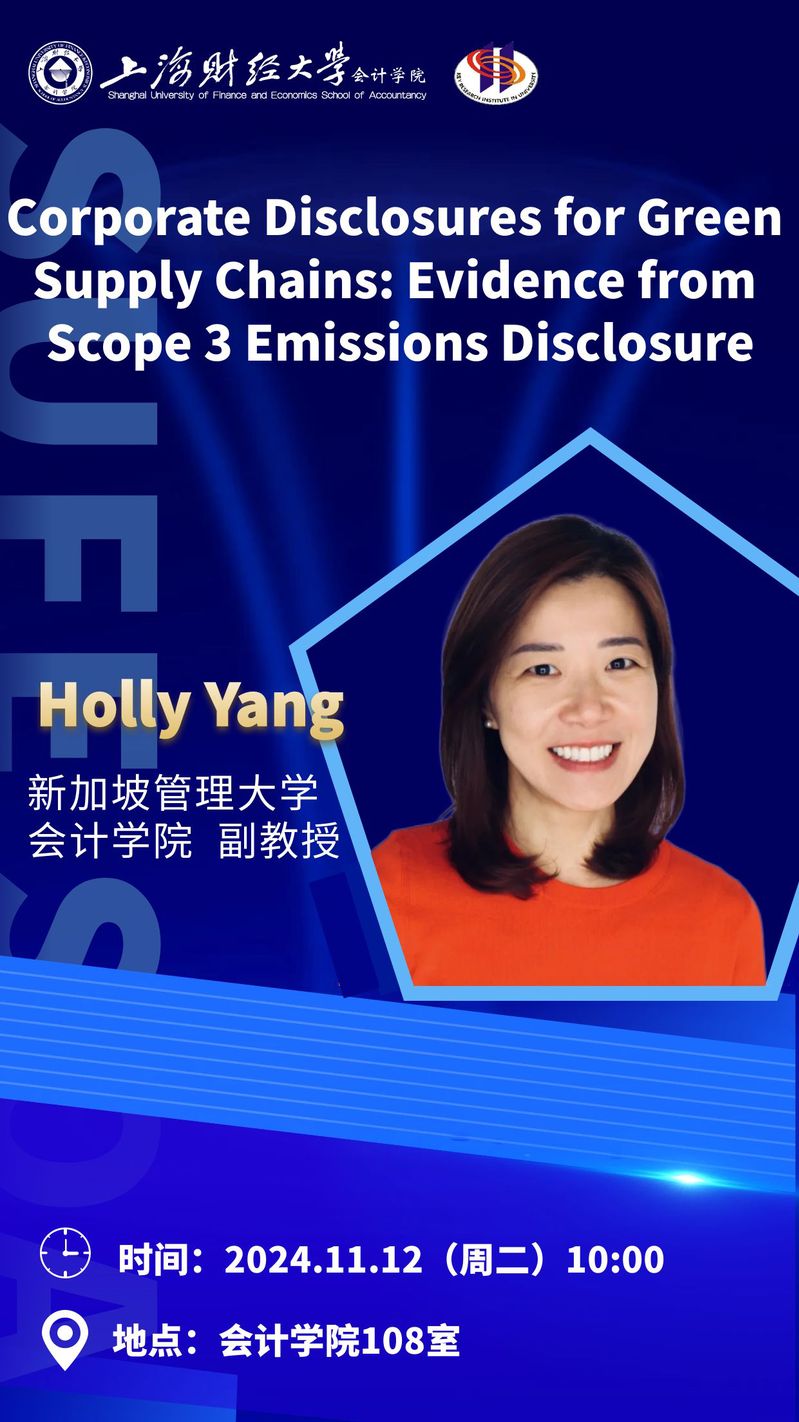【讲座时间】2024年11月12日 10:00
【讲座地点】会计学院108室
【讲座主题】Corporate Disclosures for Green Supply Chains:Evidence from Scope 3 Emissions Disclosure
【嘉宾介绍】Holly Yang,新加坡管理大学副教授
Dr. Holly Yang is a tenured Associate Professor of Accounting at Singapore Management University, where she focuses on corporate reporting and disclosure issues. Her research employs both traditional and behavioral economic theories to explore unique settings, aiming to make academic accounting research accessible and relevant to practitioners and regulators. Her work has been published in leading accounting and business journals and has been cited by institutions like the U.S. Securities and Exchange Commission, The Wall Street Journal, and The Business Times. Dr. Yang developed and currently teaches Sustainability Reporting, including greenhouse gas accounting, at both undergraduate and postgraduate levels. She also teaches International Financial Reporting Standards (IFRS) at SMU. She received her Ph.D. in accounting from Cornell University, following a Master of Accounting from the University of Michigan and a B.B.A. from National Taiwan University. Before joining SMU, she taught at the University of Michigan, Cornell University, and the Wharton School of the University of Pennsylvania.
【内容提要】
A firm’s decision to initiate Scope 3 emissions disclosure not only reflects the firm’s sustainability efforts but also signals its commitment to decarbonization, fostering collaboration among suppliers in promoting greener supply chains. Using a generalized difference-in-differences research design, we find that suppliers reduced greenhouse gas emissions following their customers’ initiation of Scope 3 emissions disclosures. This reduction in emissions is more pronounced when the supplier poses greater climate risk and when the customer has a greater need to restore public trust for its climate-related behavior. We also find that this effect varies with the strength of the customer supplier relationship and customer substitutability. Additional analyses suggest that the effect is not solely driven by direct customer monitoring and is robust to excluding customer-supplier pairs likely subject to common shocks. Overall, our results are consistent with Scope 3 emissions disclosures playing a role in promoting more sustainable supply chains.







 TOP
TOP